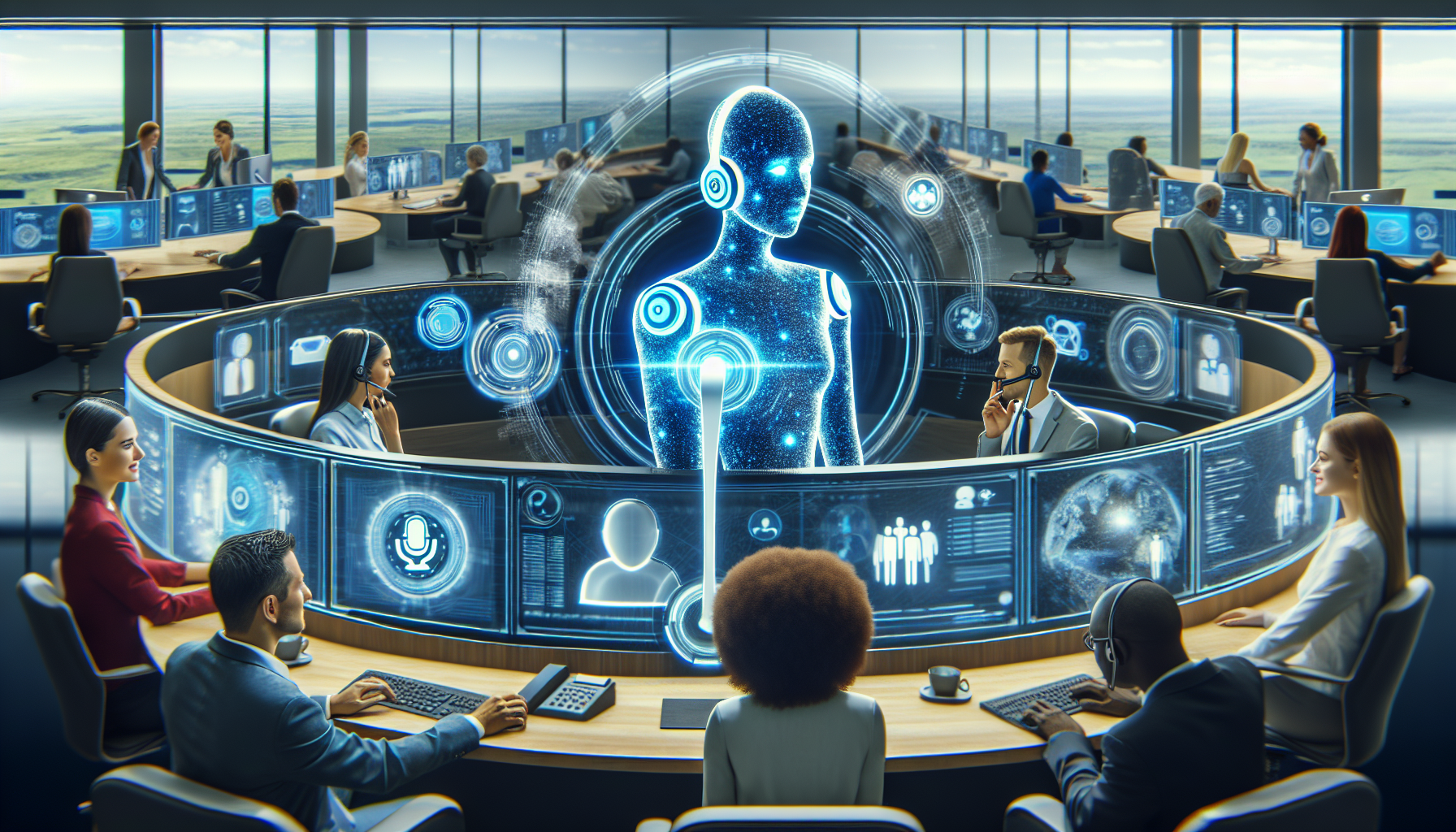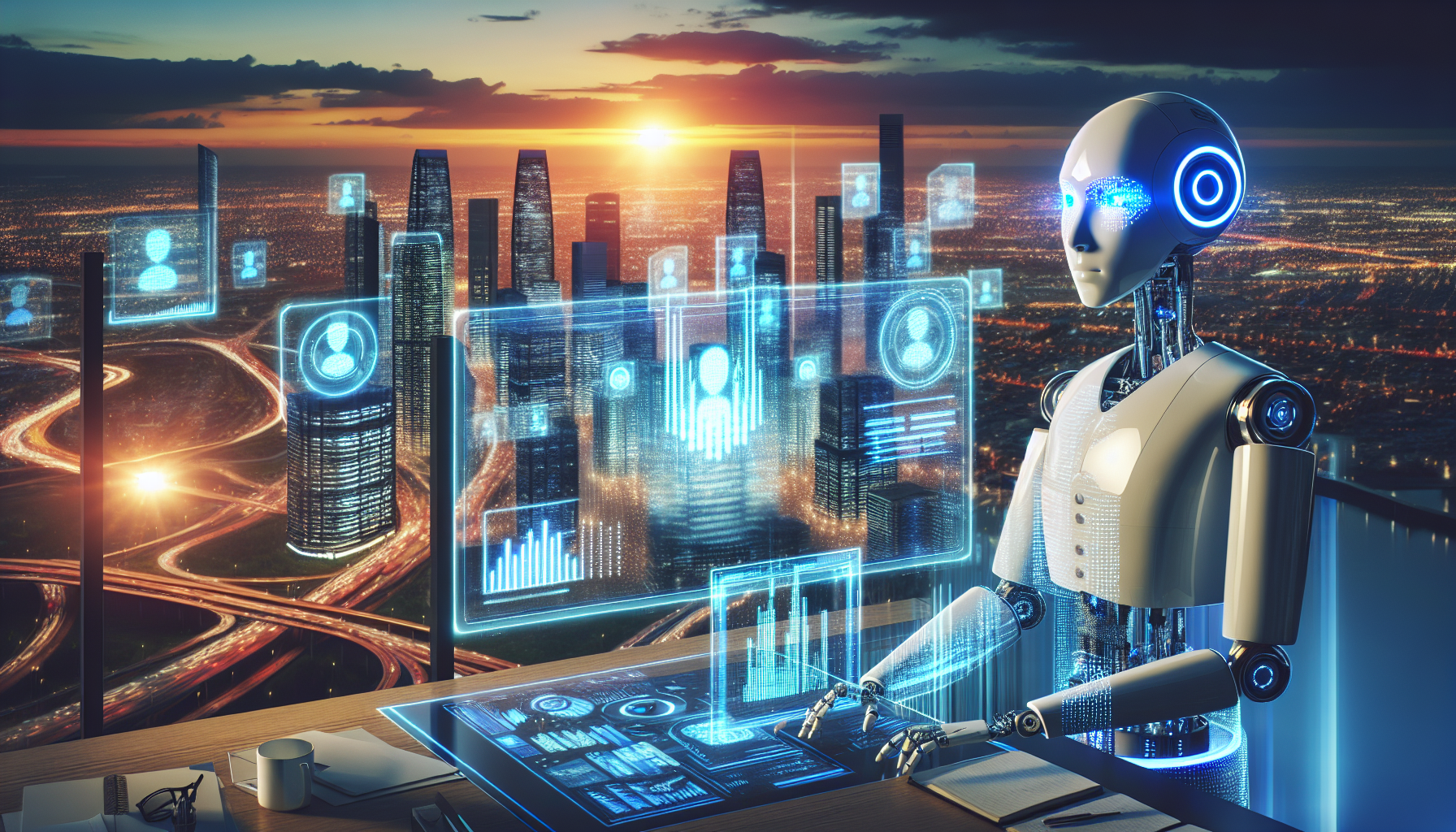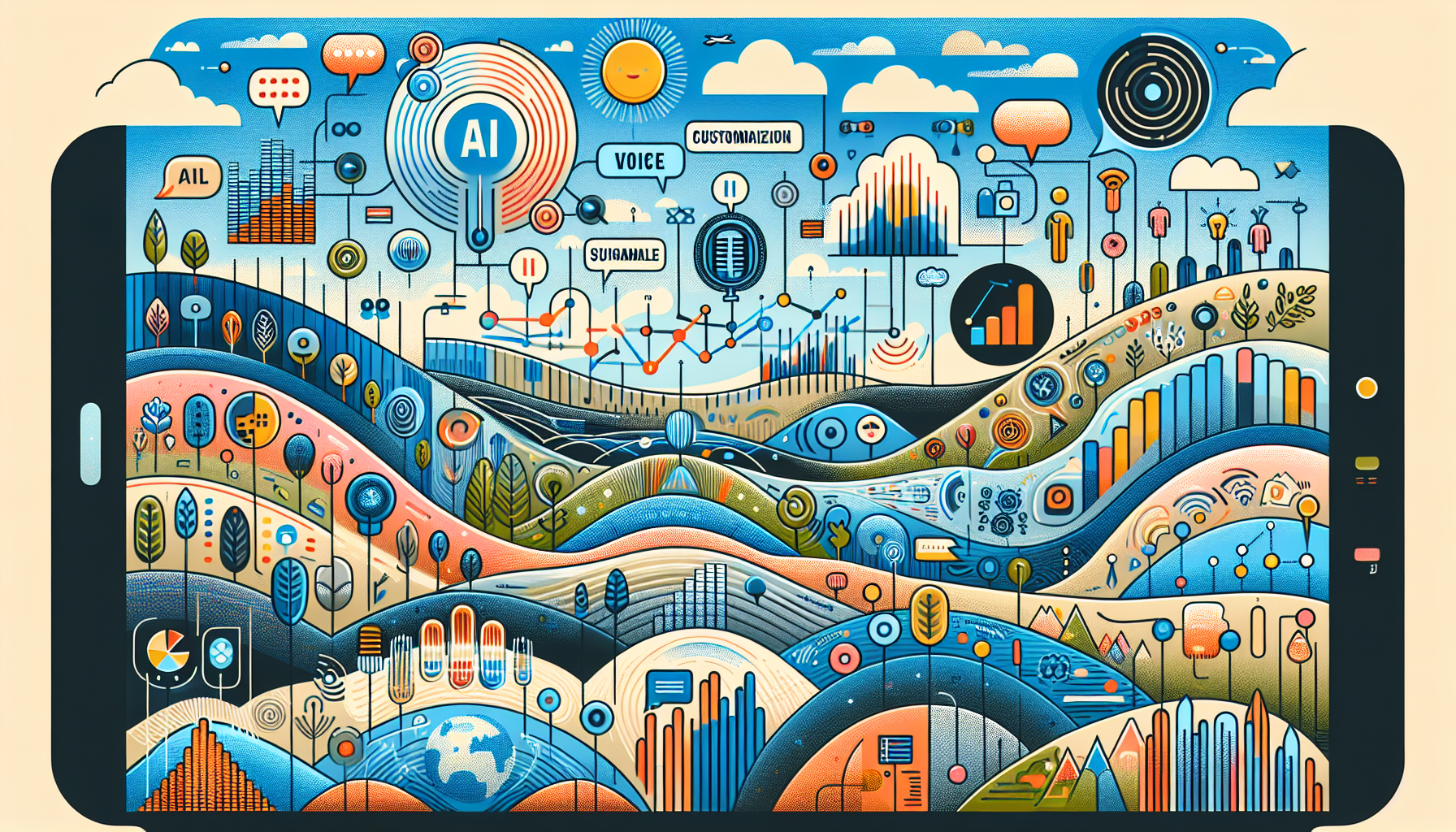
As technology continues to evolve, businesses are tirelessly looking for innovative ways to enhance their customer service strategies. One groundbreaking solution that has made significant strides in recent years is Artificial Intelligence (AI) Receptionists. These modern marvels are redefining customer service and opening up exciting possibilities in the realm of omnichannel strategies.

Designed to interact with customers day and night, AI receptionists have the capability to handle multiple inquiries simultaneously, providing instant answers and improving customer satisfaction. Powered by machine learning and natural language processing, these cloud-based virtual assistants offer contextual responses and personalized interactions that exceed the capabilities of human receptionists.
Moreover, their role becomes even more pivotal in an omnichannel customer service strategy. An omnichannel approach refers to a seamless shopping experience, whether the customer is shopping online from a desktop or mobile device, by telephone, or in a brick-and-mortar store. By integrating AI receptionists into this model, businesses can provide consistent, high-quality service across multiple channels, greatly enhancing the customer journey.
Therefore, AI receptionists serve as an indispensable tool for developing a progressive omnichannel customer service strategy. With their ability to streamline interactions and provide immediate support, these receptionists reduce response time, increase efficiency, and catalyze customer satisfaction. As we look to the future, the integration of AI-driven automation in customer interactions has become less an option and more a necessity.
Today’s hyperconnected world demands a seamless customer service experience—one that delivers prompt and accurate responses across multiple communication platforms. This is where an AI Receptionist steps in, offering significant operational benefits in a company's omnichannel customer service strategy.
AI Receptionists, unlike traditional human receptionists, can handle an unlimited number of parallel calls without compromising the quality of service. This ability to multitask effectively frees human employees to focus on more complex tasks, thereby boosting operational efficiency and cutting costs simultaneously.
Another key advantage of AI Receptionists is their integration capability with existing software ecosystems via platforms such as Zapier. This seamless integration allows AI Receptionists to access and analyze vital customer information, all while operating through familiar and already-implemented systems. They can retrieve customer history, understand prior interactions and behavior, and therefore provide a more personalized and efficient response.
In addition, 24/7 availability is a huge operational advantage offered by AI Receptionists. They are always at the helm, providing around-the-clock assistance, while ensuring consistency across all customer touchpoints. This can significantly improve customer satisfaction levels—another critical element of a successful omnichannel strategy.
In a nutshell, the fusion of limitless parallel call handling, seamless integration via Zapier, and around-the-clock availability makes AI Receptionists a vital cog in enhancing a company's overall operational efficiency. By implementing AI Receptionist systems, businesses can not only optimize their customer service performance but also enhance their strategic position in today's customer-centric arena.
In recent years, AI-based tools and technologies have dramatically resculpted the landscape of customer service. More specifically, the advent of AI Receptionists has given businesses more extensive abilities to fine-tune their omnichannel customer service strategies. A central aspect of their allure is the customization and personalization possibilities they present.

AI Receptionists can seamlessly cater to a global audience with multilingual capabilities. They are implemented with Natural Language Processing (NLP) and machine learning mechanisms, enabling them to communicate in a wide variety of languages. With this feature, businesses can ensure that customers around the world receive service in their native tongue, contributing to a more inclusive customer experience.
Furthering the lens of individualization, AI Receptionists can adapt to br>different speech patterns and tones. Managers have the freedom to program the voice of these digital helpers to reflect the brand's identity. Whether seeking a formal, friendly, or even humorous voice, businesses can mirror their corporate culture and branding through these AI interfaces.
But the personalization capabilities of AI don't stop there. AI Receptionists are capable of understanding context and initiating personalized texting workflows. This involves levering the power of context understanding to respond appropriately to individual customers. By analyzing previous interactions and drawing on historical data, AI receptionists can provide personalized responses tailored to each customer, boosting customer engagement and overall satisfaction.
At the heart of the AI Receptionist revolution is a push for more personalized and inclusive customer service. With language support, voice customization, and personalized texting workflows, businesses can further enhance their omnichannel strategies and create memorable customer experiences.
A paramount focus of any customer service strategy must be to maintain service consistency and quality, notwithstanding the business's growth or surges in demand. One of the key advantages of AI receptionists is their innate capacity to scale with the business, adeptly handle peak volumes, and guarantee seamless customer experiences across all touchpoints.
The use of AI in customer service can significantly boost service scalability. Traditional human receptionists often struggle to maintain service quality during peak times, while concurrent customer engagements are a hurdle. AI receptionists, on the other hand, are trained to manage a large volume of service requests simultaneously, without a dip in quality. As the business expands, the AI system's resources can be scaled up to handle the influx of new customers, thus maintaining the efficiency and effectiveness of the customer service.
Moreover, AI-enabled receptionists are remarkable for their reliability. Apart from the 24/7 availability, these receptionists provide consistent responses rooted in their training data. This alleviates the issue of variabilities in responses that can occur with human agents due to tiredness, moods, or lack of knowledge, and ensures uniform service quality for all customers. Reliable and consistent customer service is crucial in building customer trust and satisfaction, contributing significantly to brand loyalty.
In a successful omnichannel strategy, AI receptionists play a pivotal role in stitching together the customer journey across different platforms. Regardless of the channel – be it social media, live chat, email, or phone – the AI receptionist can accord a regularized service experience. This harmonious merging of channels ensures customers have a unified and seamless service encounter.
In conclusion, the scalability and reliability of AI receptionists provide businesses the adaptability needed for growing customer bases and varying demands, delivering consistent service experiences, thereby fortifying the core of omnichannel customer service strategies.
In this digital era, businesses are seeking innovative ways to better serve their customers while simultaneously improving their operational efficiency. One such method is by leveraging the power of AI Receptionists in Omnichannel Customer Service Strategies. Several companies have already reaped the rewards of implementing such AI-driven solutions into their customer service blueprint. Let's review some captivating case studies of AI Receptionists in action.

One stellar example would be that of global ride-hailing service, Uber. They have adopted an AI receptionist system to manage their customer inquiries and complaints. The system improved the overall efficiency by promptly responding to inquiries, often with no human interference needed, increasing customer satisfaction rates and stemming customer churn.
Another example comes from the financial sector with banking giant Wells Fargo. They leveraged an AI receptionist platform to streamline their customer service operations, delivering quick and accurate responses to customers' financial inquiries. Utilizing AI helped them save in labor costs, reduce wait times, and significantly improved customer engagement.
Closer to home, Rocket Mortgage by Quicken Loans uses an AI receptionist to answer FAQ and guide customers through complex mortgage processes. Employing AI technology demonstrated an enhanced customer experience by delivering timely, accurate responses, thus boosting consumer trust in the brand.
In conclusion, AI Receptionist plays an instrumental role in shaping Omnichannel Customer Service Strategies, yielding tangible results like increased customer satisfaction and enhanced operational efficiency. The aforementioned case studies provide strong evidence of businesses successfully adopting AI-driven solutions for improved customer service. It is now imperative that other companies, regardless of industry, begin to explore and implement AI technologies to stay competitive in today's fast-paced digital business landscape.
The rise of AI receptionists in the realm of omnichannel customer service has already sparked noticeable changes within various industries, continuously improving efficiency and customer satisfaction. Advancements in AI technology and big data analytics further offer intriguing prospects for the future, promising an even smoother, more efficient service experience.
The integration of Biometrics with AI receptionists is fast becoming a key area of focus. Leveraging biometric technology, AI receptionists will soon be capable of creating a more personalized and secure customer experience through voice and facial recognition. This technology will not only enhance the security measures but will also decrease the chances of fraud, making transactions more reliable and secure.
Moreover, the introduction of self-learning AI algorithms and machine learning can be expected to refine the decision-making and problem-solving abilities of AI receptionists. Through continuous learning and adaptation to new, real-time data, these virtual receptionists will become increasingly proficient at understanding and responding to complex customer queries, adding greater depth to their capabilities.
The potential for integrating Internet of Things (IoT) technology with AI receptionists also holds significant promise. This will allow AI receptionists to connect with a range of other smart devices, enabling real-time assistance and troubleshooting, thereby elevating the customer experience to new heights.
To summarize, the future of AI receptionists in omnichannel customer service is likely to be shaped by continuous technological advancements and integrations. Through the adoption of biometrics, self-learning algorithms, and IoT technology, AI receptionists are bound to evolve, further enhancing customer service dynamics through unprecedented levels of personalization, security, learning capabilities and interconnectedness. The businesses that will stay at the forefront of customer service innovation will be those that embrace these elaborate upgrades and evolve with the changing digital landscape.
Start your free trial for My AI Front Desk today, it takes minutes to setup!








